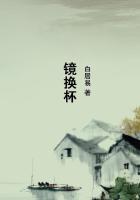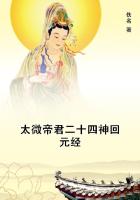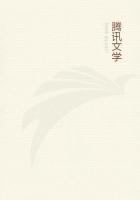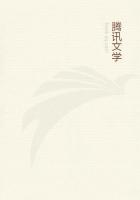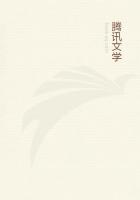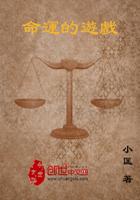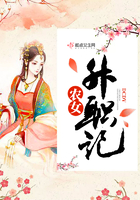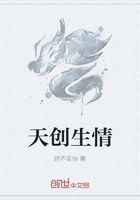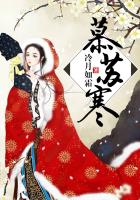Mr Pontifex went on to the Great St Bernard and there he wrote some more verses, this time I am afraid in Latin. He also took good care to be properly impressed by the Hospice and its situation. "The whole of this most extraordinary journey seemed like a dream, its conclusion especially, in gentlemanly society, with every comfort and accommodation amidst the rudest rocks and in the region of perpetual snow. The thought that I was sleeping in a convent and occupied the bed of no less a person than Napoleon, that I was in the highest inhabited spot in the old world and in a place celebrated in every part of it, kept me awake some time." As a contrast to this, I may quote here an extract from a letter written to me last year by his grandson Ernest, of whom the reader will hear more presently. The passage runs: "I went up to the Great St Bernard and saw the dogs." In due course Mr Pontifex found his way into Italy, where the pictures and other works of art--those, at least, which were fashionable at that time--threw him into genteel paroxysms of admiration. Of the Uffizi Gallery at Florence he writes: "I have spent three hours this morning in the gallery and I have made up my mind that if of all the treasures I have seen in Italy I were to choose one room it would be the Tribune of this gallery. It contains the Venus de' Medici, the Explorator, the Pancratist, the Dancing Faun and a fine Apollo. These more than outweigh the Laocoon and the Belvedere Apollo at Rome. It contains, besides, the St John of Raphael and many other chefs-d'oeuvre of the greatest masters in the world." It is interesting to compare Mr Pontifex's effusions with the rhapsodies of critics in our own times. Not long ago a much esteemed writer informed the world that he felt "disposed to cry out with delight" before a figure by Michael Angelo. I wonder whether he would feel disposed to cry out before a real Michael Angelo, if the critics had decided that it was not genuine, or before a reputed Michael Angelo which was really by someone else. But I suppose that a prig with more money than brains was much the same sixty or seventy years ago as he is now.
Look at Mendelssohn again about this same Tribune on which Mr Pontifex felt so safe in staking his reputation as a man of taste and culture. He feels no less safe and writes, "I then went to the Tribune. This room is so delightfully small you can traverse it in fifteen paces, yet it contains a world of art. I again sought out my favourite arm chair which stands under the statue of the 'Slave whetting his knife' (L'Arrotino), and taking possession of it I enjoyed myself for a couple of hours; for here at one glance I had the 'Madonna del Cardellino,' Pope Julius II., a female portrait by Raphael, and above it a lovely Holy Family by Perugino; and so close to me that I could have touched it with my hand the Venus de' Medici; beyond, that of Titian . . . The space between is occupied by other pictures of Raphael's, a portrait by Titian, a Domenichino, etc., etc., all these within the circumference of a small semi- circle no larger than one of your own rooms. This is a spot where a man feels his own insignificance and may well learn to be humble."
The Tribune is a slippery place for people like Mendelssohn to study humility in. They generally take two steps away from it for one they take towards it. I wonder how many chalks Mendelssohn gave himself for having sat two hours on that chair. I wonder how often he looked at his watch to see if his two hours were up. I wonder how often he told himself that he was quite as big a gun, if the truth were known, as any of the men whose works he saw before him, how often he wondered whether any of the visitors were recognizing him and admiring him for sitting such a long time in the same chair, and how often he was vexed at seeing them pass him by and take no notice of him. But perhaps if the truth were known his two hours was not quite two hours.
Returning to Mr Pontifex, whether he liked what he believed to be the masterpieces of Greek and Italian art or no he brought back some copies by Italian artists, which I have no doubt he satisfied himself would bear the strictest examination with the originals.
Two of these copies fell to Theobald's share on the division of his father's furniture, and I have often seen them at Battersby on my visits to Theobald and his wife. The one was a Madonna by Sassoferrato with a blue hood over her head which threw it half into shadow. The other was a Magdalen by Carlo Dolci with a very fine head of hair and a marble vase in her hands. When I was a young man I used to think these pictures were beautiful, but with each successive visit to Battersby I got to dislike them more and more and to see "George Pontifex" written all over both of them. In the end I ventured after a tentative fashion to blow on them a little, but Theobald and his wife were up in arms at once. They did not like their father and father-in-law, but there could be no question about his power and general ability, nor about his having been a man of consummate taste both in literature and art--indeed the diary he kept during his foreign tour was enough to prove this. With one more short extract I will leave this diary and proceed with my story. During his stay in Florence Mr Pontifex wrote: "I have just seen the Grand Duke and his family pass by in two carriages and six, but little more notice is taken of them than if I, who am utterly unknown here, were to pass by." I don't think that he half believed in his being utterly unknown in Florence or anywhere else!

